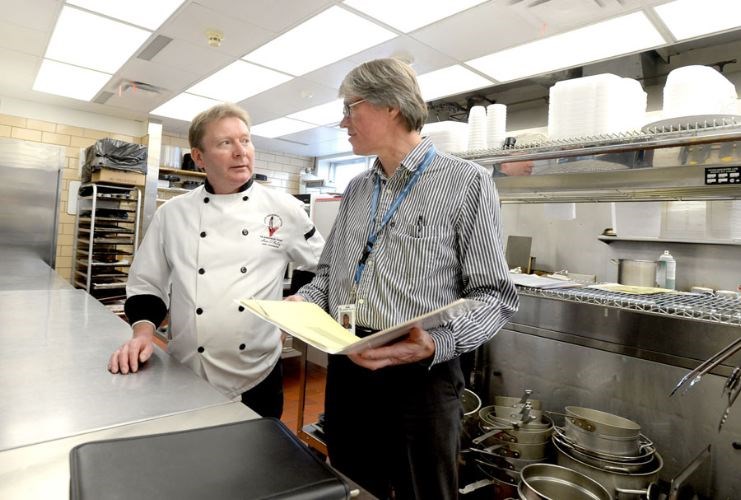Rather than try to catch and punish community groups for health code violations, Northern Health has found more success in recent years by working with them.
"Rather than us on one side of the table and you on the other, it's you and I on one side of the table, the regulations on the other," Northern Health's regional director for public health, population and protection Lucy Beck said. "We're going to work with you to get you to [comply with] those."
Not only does the new policy lead to fewer confrontations and less acrimony, it has also led to better results. The collaborative approach has encouraged groups to meet the regulations because they understand the benefits of complying rather than avoiding getting caught.
"They have to believe it and want to do it all the time and it works a lot better when, partially, they helped get to that answer and they feel they got helped there rather than told they had to go there," Beck said.
The relationship between Northern Health and some groups had become strained in the past as the officials from the health authority strictly enforced the letter of the law. Beck said the best example is the reaction Northern Health nutritionists received a few years ago when they visited a local farmer's market.
"They came back and really talked about how negative farmer's markets were about our environmental health officers and how they really stopping them from doing what they wanted to do, how they were a real barrier to them," Beck said.
Around that time, the health authority decided a culture change was in order. Existing staff were trained on ways to work together and new staff were hired based on their ability to find creative solutions.
The new approach means rather than enforcing the regulations, which say vendors at farmer's markets can only sell frozen meat and all others are in violation, health officials will work with groups who want to sell fresh meat to find a way to do so in a safe manner.
"We've come to a solution for how we can do it, by putting some additional checks and balances in place," Beck said. "We feel the food is still safe to sell to the public."
The collaborative arrangement has also allowed farm-to-school programs to flourish and enhanced co-operation with groups interested in food security. Beck said Northern Health officials now encourage groups with innovative ways to serve and distribute local food to contact them first so they can work together to ensure it's safe.
"Before food security would get in there and have some really great ideas about having local food systems, but they never talked to the food safety side of it and food safety would come in and say, 'you can't do that,' or 'you have to put that in place,' " Beck said. "So we started working together, got them to understand why food safety was important and they got us to understand why food security was important and now we deal with these things together."
Beck said three years after the culture shift began, the nutritionists received a much warmer reaction when they returned to the farmer's markets.
"They were told about how supportive the environmental health officers were, how they helped them solve the problems," she said. "It was just a real turnaround."



